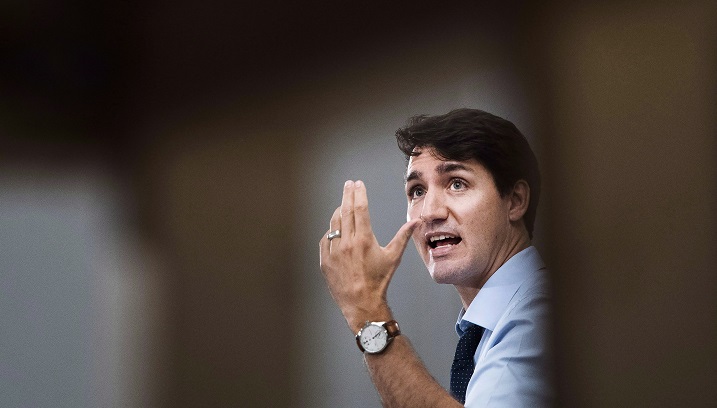Legal experts, government officials and industry leaders will all watch this week as Saskatchewan and Ottawa head to court over the constitutionality of a federally imposed carbon tax.

The federal government is set to impose a carbon levy on provinces that do not have one of their own starting in April.
Ottawa’s price on pollution starts at a minimum of $20 a tonne and rises $10 annually until 2022.
The Saskatchewan Party government has always been opposed to the idea. The province says the tax would hurt the economy and feels its own plan for emissions reductions is sufficient.
Prime Minister Justin Trudeau has promised that most of the money from a national carbon price will be returned to Canadians through rebates and that it’s a necessary mechanism to fight climate change.
The Saskatchewan government has asked the province’s Appeal Court to rule on whether a federally imposed tax is constitutional and two days of hearings are to begin Wednesday.
“There’s no question that it’s a monumental decision in the life of the Canadian Constitution,” said University of Alberta law professor Eric Adams.

Get daily National news
“The court hasn’t yet grappled explicitly with climate change as the background context to a constitutional question.”
- Toronto Stock Exchange plunges due to massive precious metals sell-off
- Bombardier warns of ‘significant impact’ to travellers from Trump’s threat
- Can Trump decertify aircraft? What experts say amid Bombardier threat
- Stepfather of two missing N.S. kids charged with sexual assault of adult, forcible confinement
In court filings, both Canada and Saskatchewan point to the Constitution to show that neither the province nor the federal government has explicit control over the environment, but that it overlaps both jurisdictions.
But Saskatchewan argues a federally imposed carbon tax is “constitutionally illegitimate” because it only applies to some provinces.
“Under our Constitution the federal government has no authority to second-guess provincial decisions with respect to matters within provincial jurisdiction,” court documents filed by the province say.
It also cites part of a 2017 legal opinion released by Manitoba, which last year pulled out of the federal plan. Legal expert Bryan Schwartz concluded that there’s a strong chance the Supreme Court of Canada would uphold a federal carbon tax.
But the law professor from the University of Manitoba said a “credible” yet “untested” argument could be made about how such a measure is applied. Schwartz wrote that a case could be made that Ottawa would be “arbitrarily denying” Manitoba authority to deal with emissions reductions in its own way.
Ottawa argues climate change is a national concern and the federal government’s power to impose a carbon tax comes from Section 91 of the Constitution, which states laws can be made “for the peace, order and good government of Canada.”
Adams said that branch of jurisdiction is not often cited in constitutional disputes because it’s difficult for courts to define the limits of a “national concern.”
Arguments are to be heard before a panel of five judges. There are also submissions from 16 interveners representing both sides of the dispute.
Applicants in support of Canada’s position include the government of British Columbia, The David Suzuki Foundation and the Athabasca Chipewyan First Nation.
Amir Attaran, lawyer for the northern Alberta First Nation, argues a federal carbon price is “a constitutional necessity” because the effects of climate change have an impact on northern Indigenous peoples’ rights to hunt, fish and trap.
Interveners on Saskatchewan’s side include anti-carbon-tax allies such as Alberta’s United Conservative Party and the government of Ontario, which has filed its own legal challenge.
Todd Lewis, president of the Agricultural Producers Association of Saskatchewan, which also has intervener status, said he supports the province’s position because he feels a carbon tax would disproportionately affect farmers.
Adams said it’s inevitable the dispute will not be settled in Saskatchewan’s highest court and will ultimately be decided by the Supreme Court.
“I think everybody understands that we are not in Game 7 of the Stanley Cup final yet. We’re in a preliminary round of the playoffs.”







Comments